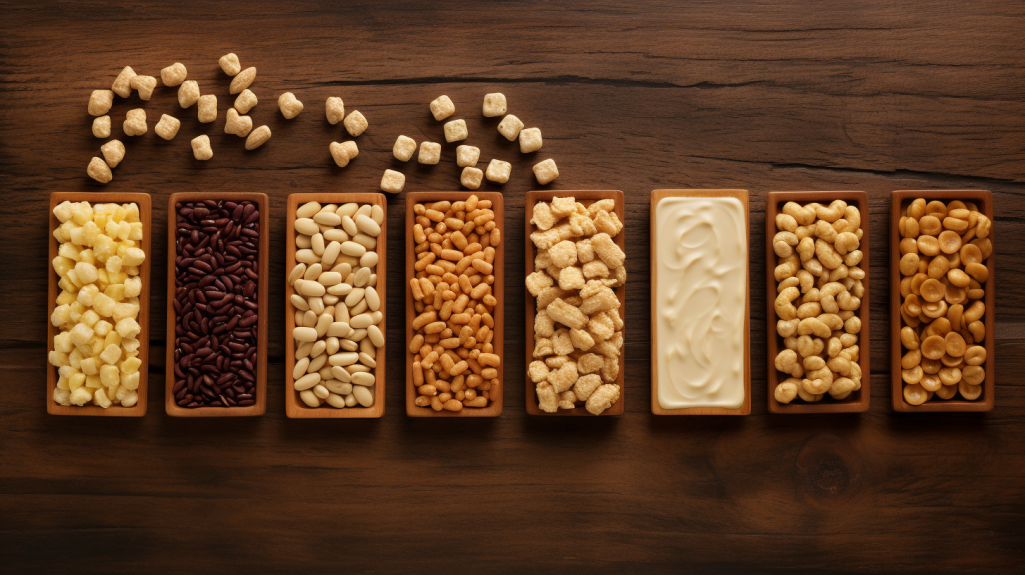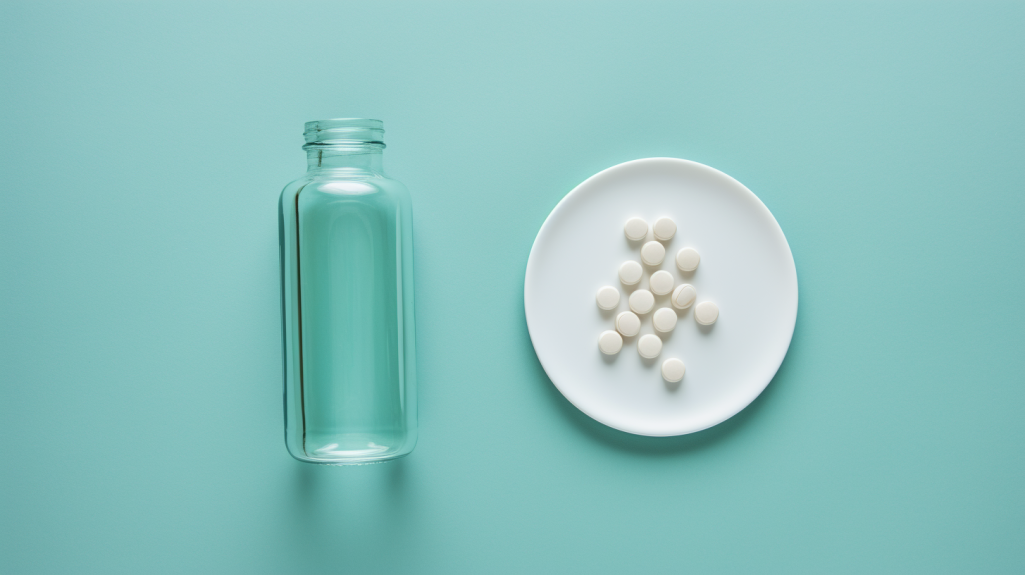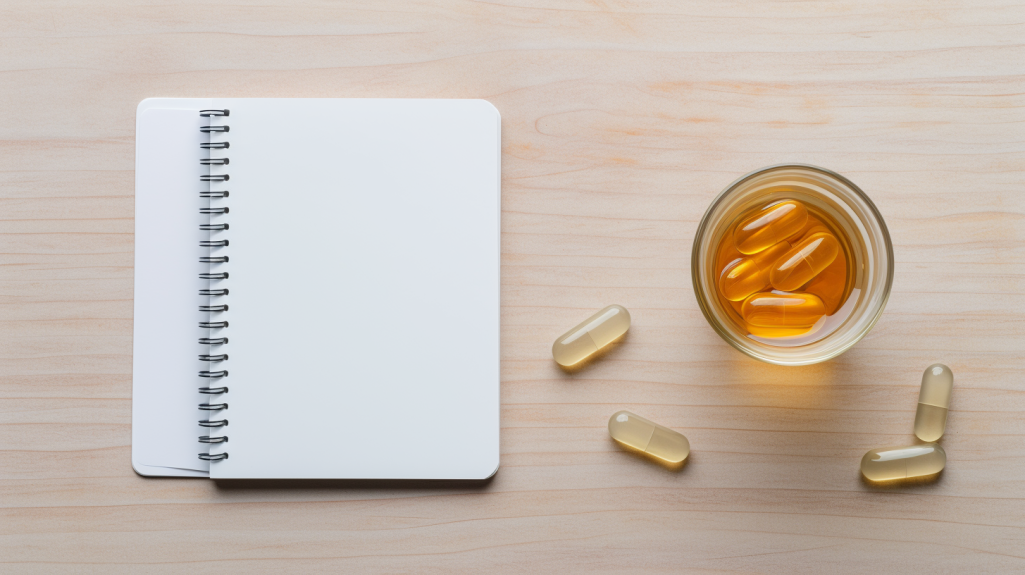If you’re someone who takes probiotics or is considering starting, you may be wondering how long they stay in your system. After all, you want to make sure you’re getting the most out of your supplements or probiotic-rich foods.
While the answer isn’t entirely straightforward, there are some factors to consider.
For starters, it’s important to understand what probiotics are and their role in the body. Probiotics are beneficial bacteria that reside in your gut and help support your immune system, aid in digestion, and even impact your mental health.
But how long do they actually stick around? That’s what we’ll explore in this article.
Key Takeaways
- The lifespan of probiotics in the body depends on multiple factors such as diet, medication, and overall health.
- Consistent probiotic intake is essential for maintaining their benefits.
- Studies suggest that probiotics can persist in the gut for up to several weeks after intake.
What Are Probiotics?
If you’ve heard of probiotics before, you might be wondering what they actually are. Probiotics are live microorganisms, including bacteria and yeast, that are beneficial to your health, especially your gut health. They are found naturally in some foods and supplements, and can also be added to certain products like yogurt and kefir.
Probiotics work by promoting the growth of good bacteria in your gut while suppressing the growth of harmful bacteria. When your gut flora is balanced, it can have a positive impact on your overall health, including better digestion and a stronger immune system.
There are many different strains of probiotics, each with their own unique benefits. Some of the most commonly used strains include lactobacillus and bifidobacterium. These strains have been shown to improve gut health, reduce inflammation, and even boost mood and cognitive function.
Research on probiotics is ongoing, but the evidence suggests that incorporating probiotic-rich foods or supplements into your diet can have numerous health benefits. Keep reading to learn more about how long probiotics stay in your system and their impact on your health.

Probiotics and Digestion
Probiotics play a crucial role in the digestive system. These live microorganisms help break down food and aid in the absorption of nutrients. When the balance of bacteria in the gut is disrupted, it can lead to issues with digestion, such as bloating, constipation, and diarrhea. This is where probiotics come in – by introducing beneficial bacteria into the gut, they can help restore balance and promote healthy digestion.
The timeframe for probiotics to impact digestion varies depending on the individual and the specific strains of bacteria consumed. Some people may notice improvements within a few days, while others may take several weeks to experience the benefits. It’s important to note that consistency is key when it comes to taking probiotics for digestion. Regularly incorporating probiotic-rich foods or supplements into your diet can help maintain a healthy gut microbiome and support digestive health.
Some studies have shown that certain probiotic strains, such as Bifidobacterium lactis and Lactobacillus acidophilus, can be especially helpful in improving digestion and reducing symptoms of gastrointestinal issues. However, more research is needed to fully understand the potential benefits of probiotics for digestive health.

“Several clinical trials have demonstrated that probiotics can improve gastrointestinal symptoms and quality of life in people with various digestive disorders.”
Overall, probiotics can be a valuable tool for supporting healthy digestion. Incorporating probiotic-rich foods or supplements into your diet, especially those containing specific strains, can help improve gut health and alleviate digestive issues. Consistency and patience are key when it comes to experiencing the full benefits of probiotics for digestion.
How Are Probiotics Absorbed?
After consumption, probiotics make their way down to the digestive tract, where they colonize the gut and provide a range of benefits to overall health. However, not all probiotics are the same, and their effectiveness can be influenced by various factors.
One crucial aspect that affects probiotic colonization is the viability of the microorganisms. Probiotics need to be alive and active to exert their positive effects, and their survival rate depends on several factors, including the type of strain and the conditions of the gut environment.
Studies show that different strains of probiotics can have varying survival rates in the gut. For example, some strains, such as Lactobacillus acidophilus, have a high tolerance to gastric acid and bile, which enables them to reach the gut and colonize it effectively. Others, such as Bifidobacterium lactis, have lower tolerance levels and may require specific encapsulation technologies to enhance their viability.
| Factors Affecting Probiotic Viability | Description |
|---|---|
| Gastric acid and bile | The harsh acidic and enzymatic environment of the stomach and small intestine can kill off probiotics before they reach the colon. |
| Diet | Consuming a diet high in fat, sugar, and processed foods can negatively impact the gut microbiome, making it less hospitable to probiotics. |
| Antibiotics | Antibiotics can destroy both harmful and beneficial bacteria, which can disrupt the balance of the gut microbiome and reduce the effectiveness of probiotics. |
| Overall health | Chronic illnesses, stress, and other health conditions can affect the gut microbiome and weaken the immune system, reducing the ability of probiotics to colonize the gut. |
The duration of probiotic colonization in the gut also varies based on the factors mentioned above. On average, probiotics can remain in the body for a few days to a few weeks. However, their benefits may persist for longer, especially if they stimulate the growth of other beneficial bacteria in the gut.
In summary, probiotics need to be alive and active to provide health benefits, and their viability depends on various factors. The survival rate of different strains can vary, and their duration in the gut is influenced by diet, medication, and overall health.

Factors Affecting Probiotic Lifespan
Various factors can influence how long probiotics stay in your system. These include:
- Diet: Your diet can impact the effectiveness of probiotics in your gut. A diet high in processed foods and sugar can create an unfavorable environment for probiotics, while a diet rich in fiber and whole foods can enhance their survival and colonization.
- Medication: Certain medications, such as antibiotics and antacids, can disrupt the balance of bacteria in your gut and reduce the lifespan of probiotics.
- Overall health: Your overall health can also affect how long probiotics stay in your body. Chronic stress, illness, and a weakened immune system can all contribute to a less hospitable environment for probiotics.
In order to maximize the benefits of probiotics, it’s important to maintain a healthy lifestyle and avoid factors that can negatively impact their effectiveness in your gut.

Duration of Probiotic Supplementation
When it comes to taking probiotics, the duration of supplementation can vary depending on the individual’s needs and goals. In general, it is recommended to take probiotics for at least several weeks to see their benefits.
According to a study published in the Journal of the American Medical Association, taking probiotics for at least one to two weeks can lead to improvements in digestive symptoms such as bloating, gas, and diarrhea. However, for longer-term benefits such as immune system support and overall gut health, it is recommended to take probiotics for several months or even longer.
The duration may also depend on the specific strain or combination of strains being used. Some probiotics may have a shorter lifespan in the body and may need to be taken more frequently to maintain their benefits.
It’s important to keep in mind that probiotics should not be viewed as a quick fix solution for health issues. Consistent intake over a longer period of time can lead to the best results.

Retention Time of Probiotics
Probiotic retention time refers to the period during which probiotics persist in the gut after intake. The amount of time probiotics stay in your system can vary depending on several factors, including the type of probiotic strain and your overall health.
Research has shown that probiotics can remain in the gut for up to two weeks or longer after intake. A study published in the journal Beneficial Microbes found that some strains of probiotics, such as Lactobacillus acidophilus and Bifidobacterium lactis, were detected in fecal samples for up to 14 days after subjects stopped consuming the probiotic supplement.
However, it’s important to note that probiotic retention time can be affected by several factors, including your diet, medication use, and overall gut health. For example, if you consume a diet high in fiber and prebiotics, you may be able to support the colonization and growth of probiotics in your gut, leading to a longer retention time.
On the other hand, certain medications, such as antibiotics, can wipe out beneficial gut bacteria and shorten the retention time of probiotics. Additionally, if you have an imbalance of gut bacteria or suffer from a digestive disorder, you may not be able to effectively retain probiotics in the gut.
To help optimize the benefits of probiotics, it’s essential to support their colonization in the gut. This can be achieved through consistent probiotic supplementation or consumption of probiotic-rich foods, such as yogurt, kefir, and kimchi.

By supporting probiotic colonization in the gut, you may be able to increase the retention time of probiotics and improve their overall effectiveness. However, it’s important to note that probiotics are not a one-size-fits-all solution and may not work for everyone.
In the next section, we will highlight relevant studies and research conducted on the duration of probiotics in the body.
Studies on Probiotic Duration
Various studies have been conducted to determine the duration of probiotics in the body. One study showed that probiotic strains such as Lactobacillus rhamnosus survived in the gut for up to 20 days after consumption, while others were detected for only a few days.
Another study found that the colonization of probiotics in the gut was highly individualized and dependent on several factors, including age, diet, and health status. It concluded that the survival and effectiveness of probiotics vary widely among individuals, making it challenging to determine their exact duration in the body.
Overall, the length of time that probiotics stay in your system can range from a few days to several weeks, depending on various factors. It is essential to note that probiotics can have long-term benefits, even if they are not present in the gut for extended periods.

Incorporating probiotics into your diet or supplement regimen can promote healthy digestion and boost your immune system. To ensure maximum benefits, it is recommended that you consume probiotics regularly and consistently. Additionally, selecting the right probiotic strains and supporting their colonization in the gut can help optimize their effectiveness.
As with any supplement or dietary change, it is crucial to consult with a healthcare professional before starting probiotic supplementation. They can help you determine the appropriate duration and dosage and ensure that probiotics are safe and suitable for your individual needs.
How Long Do Probiotics Last?
Probiotics are live microorganisms that can provide numerous health benefits when consumed. The duration of their presence in your body depends on various factors such as the type of strains, your diet, medication, and overall health condition.
According to studies, probiotics can persist in your gut for several days to a few weeks after intake. However, this timeline can vary significantly depending on the individual and the specific probiotic strain. Some strains may only remain for a few days, while others can colonize the gut for months.
It’s important to note that consuming probiotic-rich foods or supplements regularly is essential to maintain their benefits.
Probiotics can have a significant impact on your overall health and wellness by promoting healthy digestion, regulating immunity, and enhancing nutrient absorption. However, their effects can be transient, meaning that consistent intake is critical.
For optimal results, it’s recommended to consume probiotics regularly, preferably daily, and for extended periods. Typically, probiotic supplements are taken for a few weeks to a few months, depending on the specific health goals and needs.
Remember to always consult with your healthcare provider before starting any new supplement regimen.

The Importance of Probiotic Consistency
If you want to reap the benefits of probiotics, it’s essential to be consistent with your intake. Incorporating probiotic-rich foods or supplements into your daily routine can help maintain a healthy gut and enhance your overall well-being.
Probiotics work by colonizing the gut, which means they need to be present in the digestive tract consistently to have a lasting impact. Skipping days or weeks of supplementation can reduce the effectiveness of probiotics. Therefore, it’s crucial to maintain regular intake.
Keep in mind that not all probiotics are created equal, and some strains may be more effective than others. Consult with your healthcare provider or a registered dietitian to determine which strains will be beneficial for you and how often to consume them.
Additionally, supporting the growth of probiotics in the gut can enhance their longevity and effectiveness. Eating a diet that’s rich in fiber, fermented foods, and prebiotics can help provide a nourishing environment for probiotics to thrive. Reducing stress and getting enough sleep also play a role in the health of your gut microbiome.
By being consistent with your probiotic intake and supporting a healthy gut environment, you can maximize the benefits of probiotics for your overall health and well-being.

When Do Probiotics Leave the Body?
After taking probiotics, you may be wondering how long they will stay in your system. Generally, the retention time of probiotics in the body can vary depending on several factors such as the type of strain, dosage, diet, and overall health.
According to a study, some probiotic strains can remain in the gut for up to two weeks after intake, while others are eliminated more quickly. The elimination process can also vary from person to person.
It’s important to note that for probiotics to have a lasting impact on gut health, consistent intake is necessary. This is because probiotics are not able to colonize the gut permanently, but their benefits can still be observed with regular consumption or supplementation.
After probiotics have completed their function in the body, they are eliminated through the feces. The average time it takes for probiotics to be excreted is around 3 to 4 days after intake.
It’s essential to prioritize a healthy diet and lifestyle to support the colonization of probiotics in the gut and optimize their benefits.

Tip: To ensure the best results, consult with a healthcare professional to determine the appropriate probiotic supplementation for you.
Tips for Optimizing Probiotic Benefits
To get the most out of your probiotics, consistency is key. Here are some tips to help you optimize the benefits of these beneficial bacteria.
Choose the Right Strains
When selecting a probiotic supplement, it’s important to choose a product that contains strains that have been clinically studied for their health benefits. Look for products that contain Lactobacillus acidophilus, Bifidobacterium lactis, and other well-researched strains.
Depending on your specific health needs, you may also want to look for a probiotic supplement that is targeted towards a particular condition, such as irritable bowel syndrome (IBS) or urinary tract infections.
Maintain a Healthy Lifestyle
Probiotics work best when coupled with a healthy lifestyle. Be sure to consume a balanced diet that includes plenty of fiber-rich fruits and vegetables. Reduce your intake of sugar and processed foods, which can disrupt the balance of bacteria in your gut.
Regular exercise and stress-management techniques, such as meditation and yoga, can also support a healthy gut microbiome.
Support Probiotic Colonization
In order for probiotics to be effective, they need to establish a presence in the gut. You can support this colonization by taking your probiotic supplement at the same time every day, ideally on an empty stomach.
Additionally, prebiotic foods, such as onions, garlic, and whole grains, can help to feed and support the growth of probiotics in the gut.
By following these tips, you can help to optimize the benefits of probiotics and support your overall health and well-being.

Conclusion
In conclusion, how long probiotics stay in your system can vary depending on various factors. While the retention time of probiotics can be influenced by aspects such as your diet, medication, and overall health, consistent intake is crucial to maintain their benefits. It is recommended to take probiotics regularly, whether through supplementation or the consumption of probiotic-rich foods, to support their colonization in the gut, aid in digestion, and improve overall health. Studies have shown that probiotics can persist in the body for a certain amount of time, but it is important to follow general guidelines and recommendations for the duration of supplementation. Keep in mind that optimizing the benefits of probiotics requires selecting the right strains, supporting their colonization, and maintaining a healthy lifestyle. If you’re unsure about how to incorporate probiotics into your routine, consult with a healthcare professional to determine the best approach for you.
FAQ
Q: How long do probiotics stay in your system?
A: The duration of probiotics in your system can vary depending on several factors, including the specific strains of probiotics consumed, individual metabolism, and overall health. However, research suggests that probiotics can persist in the body for several days to weeks after intake.
Q: What are probiotics?
A: Probiotics are live microorganisms that provide health benefits when consumed in adequate amounts. They are often referred to as “good bacteria” and can be found in various food sources and dietary supplements.
Q: How do probiotics affect digestion?
A: Probiotics play a crucial role in digestion by aiding in the breakdown of food and supporting gut health. They help maintain a balance of beneficial bacteria in the gut, which promotes proper digestion and nutrient absorption.
Q: How are probiotics absorbed?
A: Probiotics are primarily absorbed through the process of colonization in the gut. The live bacteria in probiotics adhere to the intestinal lining, allowing them to establish a presence and exert their beneficial effects.
Q: What factors can affect probiotic lifespan in the body?
A: Several factors can influence how long probiotics stay in the system, including diet, medication use, overall health, and the specific strains and dosage of probiotics consumed.
Q: How long should probiotic supplementation last?
A: The duration of probiotic supplementation can vary depending on individual needs and health conditions. It is best to follow the recommendations provided by healthcare professionals or the instructions on the specific probiotic product.
Q: How long do probiotics typically stay in the body?
A: Probiotic retention time can vary from person to person. On average, probiotics can be detected in the gut for several days to weeks after consumption.
Q: What does scientific research say about the duration of probiotics in the body?
A: Numerous studies have been conducted to investigate the duration of probiotics in the body. Scientific evidence suggests that probiotics can persist in the system for varying lengths of time, depending on factors such as strain, dosage, and individual health.
Q: How long do probiotics last in the body?
A: The exact duration of probiotics in the body can vary, but research indicates that they can have a presence in the gut for several days to weeks before being eliminated.
Q: Why is consistent probiotic intake important?
A: Consistent probiotic intake is essential to maintain the benefits they provide. Regular supplementation or consumption of probiotic-rich foods helps ensure a steady supply of beneficial bacteria in the gut, supporting overall health and digestion.
Q: When do probiotics typically leave the body?
A: Probiotics typically leave the body through bowel movements within a few days to weeks after consumption. The elimination timeframe can vary depending on factors such as individual metabolism and the specific strains of probiotics consumed.
Q: What are some tips for optimizing probiotic benefits?
A: To optimize probiotic benefits, consider selecting strains that have been researched for their specific health benefits, maintaining a healthy lifestyle with a balanced diet and regular exercise, and supporting probiotic colonization in the gut by avoiding excessive antibiotic use and consuming prebiotic-rich foods.














